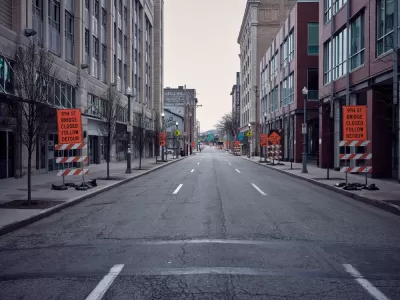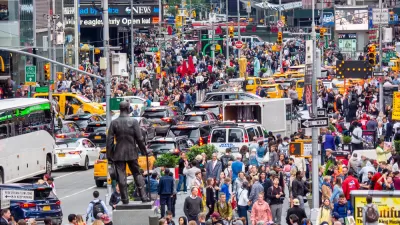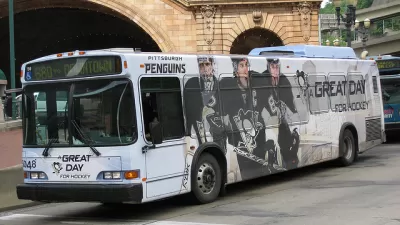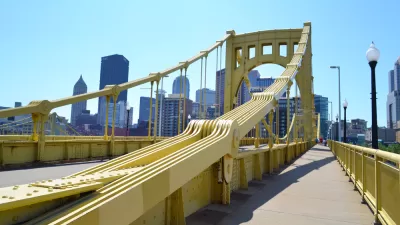With $5.2 billion of investment in the past 10 years, and another $3.5 billion in the development pipeline, Pittsburgh planning organizations are considering ways to rethink the streets of the city's downtown.

The Pittsburgh Downtown Partnership, along with the city of Pittsburgh, Port Authority of Allegheny County, and the Southwestern Pennsylvania Commission, is preparing to launch a one-year planning study of downtown streets, with the aim of preparing for changing trends and technological innovations.
"The study will look at such things as reducing single-passenger vehicles, creating stopping areas for shared-services such as Lyft and Uber and identifying where future bike and pedestrian paths should be located," reports Ed Blazina.
The Port Authority board could clear the way for the study when it meets later this week.
"The study should take about a year to complete, but it likely will be a living plan that changes as projects and issues develop. The Downtown Partnership, which is paying for the study, has received proposals from consultants and expects to choose one by September," reports Blazina.
FULL STORY: Pittsburgh, agencies to study future of Downtown streets

Planetizen Federal Action Tracker
A weekly monitor of how Trump’s orders and actions are impacting planners and planning in America.

Map: Where Senate Republicans Want to Sell Your Public Lands
For public land advocates, the Senate Republicans’ proposal to sell millions of acres of public land in the West is “the biggest fight of their careers.”

Restaurant Patios Were a Pandemic Win — Why Were They so Hard to Keep?
Social distancing requirements and changes in travel patterns prompted cities to pilot new uses for street and sidewalk space. Then it got complicated.

Platform Pilsner: Vancouver Transit Agency Releases... a Beer?
TransLink will receive a portion of every sale of the four-pack.

Toronto Weighs Cheaper Transit, Parking Hikes for Major Events
Special event rates would take effect during large festivals, sports games and concerts to ‘discourage driving, manage congestion and free up space for transit.”

Berlin to Consider Car-Free Zone Larger Than Manhattan
The area bound by the 22-mile Ringbahn would still allow 12 uses of a private automobile per year per person, and several other exemptions.
Urban Design for Planners 1: Software Tools
This six-course series explores essential urban design concepts using open source software and equips planners with the tools they need to participate fully in the urban design process.
Planning for Universal Design
Learn the tools for implementing Universal Design in planning regulations.
Heyer Gruel & Associates PA
JM Goldson LLC
Custer County Colorado
City of Camden Redevelopment Agency
City of Astoria
Transportation Research & Education Center (TREC) at Portland State University
Camden Redevelopment Agency
City of Claremont
Municipality of Princeton (NJ)





























